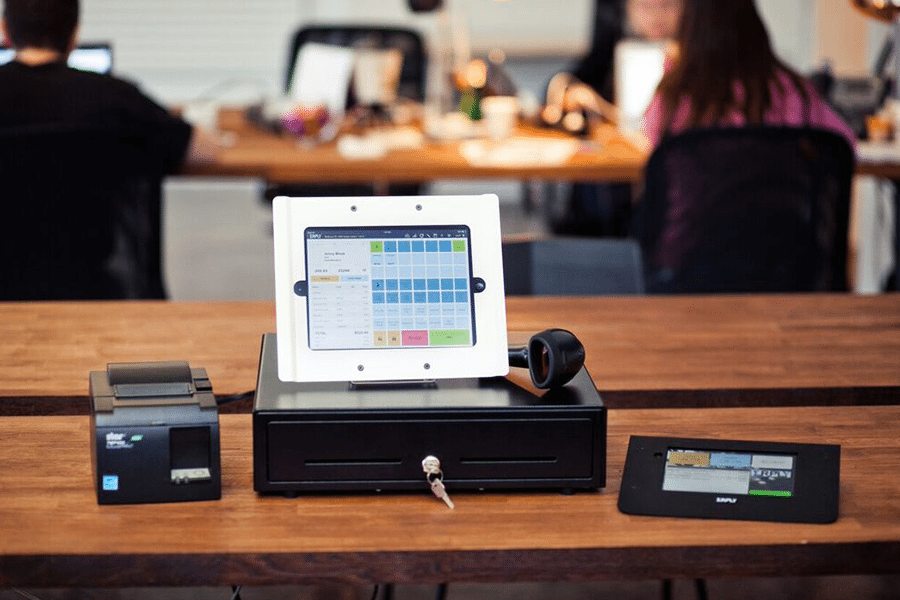Kitchen management refers to the personnel and organizational systems necessary to operate a restaurant according to the chef/s’ and owner/s’ standards. Modern professional kitchens use a kitchen management system that is a simple yet effective way to lead a team.
While the baseline structure of kitchen management is simple, the duties of a kitchen manager are vast, requiring a lot of nuance and attention to detail. Below, we discuss kitchen management duties and the tools and tips for effective kitchen management.
Key Takeaways:
- Kitchen managers are more effective when they can clearly define their duties and create a collaborative working environment with their staff.
- Kitchen management comes down to organized systems that are overseen by the kitchen manager.
- A kitchen manager is responsible for a vast list of duties that must be completed at a high level to achieve success for the restaurant.
Kitchen Management Duties
The duties of a kitchen manager are vast, and a lot of different aspects of the restaurant flow through this highly important role. While you have a team working on an assortment of tasks, the kitchen managers themselves are akin to the coach of a team. They observe the game, assess the actions or plays needed to win, and help coach and ensure these actions are done properly.
Below is a list of the common kitchen manager duties many in this position are responsible for:
- Oversight of kitchen operations: The daily operations of a kitchen include everything from ordering to prep. While we will break these tasks down further, overseeing daily operations is the key function of this role.
- Food quality and safety assurance: Managing food quality is critical to ensuring continuing customer visits. If your food is poor in quality, customers will not come back. The same is true for food safety. Without safe food, you cannot serve customers, and your business can be in major trouble.
- Ordering and inventory management: Ordering your inventory is a daily task, and keeping your par levels in order is a major kitchen manager function. In the same vein, taking stock of your inventory is vital to cost management and accurate ordering.
- Recipe creation and implementation: Recipe creation is a key role for some kitchen managers. If you work in an independent restaurant, you will most likely be responsible for adding new dishes or items to the menu. If you work in a more structured setting—like a franchise—you will be responsible for implementing and training your staff to execute new dishes designed by a chef-owner or a corporate office.
- Staff training and development: Another key task in kitchen management is training and developing your team. By working daily with different team members, you can build rapport and focus on ensuring the professional growth and development of those you lead.
- Kitchen maintenance: A clean kitchen is vital to meeting food safety standards. Hourly floor cleanings, proper protocol on dishwasher sanitizer levels, dedicated spaces for dirty dishware, and proper opening and closing sanitation procedures are just a few of the many details you need to focus on.
- Equipment maintenance: Another aspect of this role is ensuring all kitchen equipment is safe to use and in working order. If the hood fans go out during service, you need to call to make the repairs. If the immersion blender breaks, you need to order a new one. Functional kitchen equipment is key to smooth operations.
- Food waste management: A large role in cost control in a restaurant is managing the food waste created by daily operations. There will always be some form of food waste in running a restaurant; your job is to make it as minimal as possible.
- Kitchen supply stock management: Storage containers, tasting spoons, and other similar items should be stocked for your staff to do their jobs properly.
- Customer feedback: Hearing customer feedback—including customer complaints—is crucial to creating a dining experience that customers enjoy coming back to. Understanding what customers like and what needs to be improved and acting on this information is a key skill that the best kitchen managers have.
- Working with FOH staff: Effectively working with the front-of-house staff clears up customer orders, strengthens your ability to serve guests, and creates a working environment that is conducive to accomplishing the business’s goals.
- Compliance with local health and safety bodies: This role requires the ability to conduct a walkthrough with a health inspector, correctly take temperatures of TCS foods, and store all ingredients in a food-safe manner.
- Performance evaluations: Scheduling performance evaluations gives your staff key metrics to focus on. These evaluations can happen quarterly, bi-annually, or annually and gauge a staff member’s skill and rank level.
- Vendor relations: Another key duty of kitchen management is establishing and maintaining relationships with vendors. This allows you to negotiate better pricing, get higher-quality items, and also get more prompt delivery in emergencies.
As you can see, the duties of a kitchen manager can be broad and extend to different areas of the kitchen. This list may vary per the kitchen you work in; you can have more or less of these duties to perform, depending on the overall restaurant concept. The duties above, though, are the common responsibilities of a kitchen manager.
Kitchen Management: Required Skills
When it comes to management skillsets, it is simpler to divide the skills needed for a certain role into hard and soft skills. Hard skills are the technical abilities, achievements, and experience gained that qualify a person for a role. Soft skills are more interpersonal, such as the ability to empathize with your staff or display a degree of emotional intelligence.
Below are the required hard skills and the often-needed soft skills to be successful in kitchen management.
Hard Skills
The hard skills often required for kitchen management include knowledge of culinary techniques and food safety. Gained experience in professional kitchens, past ranking in the kitchen “brigade system,” and general knowledge of customer engagement are other skills.
The kitchen brigade system is a hierarchical structure created to organize kitchen staff into specialized roles, which allows for operational efficiency and product output consistency.
- Culinary technical ability: The culinary skills needed for kitchen management include an understanding of various cooking techniques, how food interacts with each other, and efficient prep of delicious and high-quality end dishes.
- Food safety: The next major hard skill is the ability to maintain a clean and food-safe kitchen. ServSafe Manager certifications declare your expertise in food safety and are actually required by many regions to keep kitchen operations in good standing.
- Inventory management and tracking: Kitchens run on the ability to manage tight food costs. This relies on detailed and accurate inventory management, which is vital for serving fresh and safe products.
- Menu planning: The skill of turning a concept into a tangible menu item takes time to develop. Kitchen managers must possess menu development skills.
- Scheduling and staff management: Being able to schedule staff is crucial, especially since labor cost is a prominent focus in the restaurant world. Proper management skills also allow you to run a team that can produce great products and deliver a high-quality experience to guests.
- Budget and cost control: Another major aspect of kitchen management is budgeting and cost control. Being able to operate a profitable restaurant business is paramount to your success in management.
Soft Skills
One of the beautiful aspects of kitchen management is that you get to work with a wide array of people. This is why soft skills are so important. They are the intangible yet highly important aspects of your character and managerial style that will affect a food operation. Below are some of the soft skills required to be in kitchen management.
- Leadership: The obvious first soft skill anyone in a managerial role should have is leadership. Leadership is the ability to guide others in an organized way to achieve a goal. Good leadership sets the best chefs and kitchen managers apart.
- Communication: Clear and effective communication is vital in a professional kitchen. The environment is fast-paced, and there is a lot to be accounted for. Every kitchen manager should strive to communicate effectively and clearly with their team.
- Time management: Ordering products, inventory, training, scheduling, and the plethora of other tasks you have as a manager lead you to be busy all the time. Time management is vital to ensuring you not only accomplish all of these tasks but also give them the proper amount of attention to do them well.
- Empathy: A hard-to-find skill in many kitchens, empathy will set you apart from other kitchen leaders. Being able to empathize with your staff lets you unlock ways to improve the operation while also encouraging them to buy into your leadership.
- Attention to detail: The skill to be attentive to the task at hand is what separates a kitchen system that is about to implode from one that runs like a well-oiled machine. Sharp, technical attention to detail is what makes a kitchen manager successful.
- Training ability: You are only as good as the cooks you train. Therefore, the ability to teach and train staff up to the point of proficiency is a vital trait the best kitchen managers share.
- Stress management/Conflict resolution: The ability to operate in a high-stress environment is a major asset. The ability to do this while also being able to manage conflict on your team is a trait most strive for when leading a kitchen. Operating under stress while also keeping your team productive and preventing burnout is invaluable.
As you can see, there are many technical and soft skills one should have as a kitchen manager. The good news about many of these skills is that you can attain them through hard work, self-reflection, and training under other kitchen managers. I recommend writing down some skills you would want to work on and dedicating this next month to focusing your training on these weaker points in your skillset. This is how you develop as a kitchen manager.
Tips for Effective Kitchen Management
Managing a kitchen is hard, yet it can be very rewarding if done correctly. Furthermore, due to the popularity of restaurants, being a good kitchen manager can be lucrative and lead to a very prosperous career. Below are some tips to implement into a kitchen management system for a successful operation overall.
Lead Professionally
One of the major drawbacks to working in kitchens over the past few decades has been the hostile and volatile nature kitchens have unfortunately become known for. In 2024, this type of environment has been reduced greatly by leaders in the industry pushing for better overall working conditions.
That being said, it is upon every kitchen manager to foster a constructive, respect-driven environment wherever they work. Leading with empathy, focusing on growth, and creating a collaborative environment are all responsibilities of a professional kitchen manager.
Related:
Empower Kitchen Leaders
In a kitchen brigade system, leadership roles stem from the kitchen manager. Empowering these leaders to make decisions, guide their direct reports, and keep an open dialogue with you will lead to an effective and easy-to-manage organizational structure. Letting leaders below you, such as a sous chef, effectively manage staff makes your job easier and builds a strong structure on which your kitchen can operate.
Remember: No Task Is Above You
In order to gain the respect of your staff, you need to be willing to do whatever you are asking of them—mopping the floors, hopping in to clean dishes, peeling potatoes. Being willing to do these tasks and do the work you are asking of them yourself is a great way to convey your skill set to those you are leading. Keeping this in mind is crucial throughout your career as a kitchen manager.
Have Organized Systems
One key factor in poor kitchen management is a lack of organized systems in your kitchen. If you do not have organized ways of doing inventory or putting away orders, for example, then your kitchen will not run efficiently. Furthermore, this can lead to employee frustration, higher costs in key financial areas, and poor food quality. Orienting your team around solid systems is an essential step in running a successful restaurant.
Ensure Clear Lines of Communication
With the modern age of digital communication, there is no reason not to have clear communication channels. Be it a tool such as Slack, an email group in Gmail, or simply a built-in point-of-sale (POS) feature, the options to communicate with your team are endless. Beyond this, having direct channels for staff to air concerns, conducting regular team meetings, and giving clear direction to your staff are integral to consistently clear communication.
Read more: Restaurant Technology
Be Diligent In Your Standards
The last piece of advice I can give you is to be diligent in your standards. Due to a restaurant’s busy nature, people may try to cut corners or push the boundary of what is considered the standard. Be firm in your standards and the quality of food and experience you present to customers to accomplish all your business goals—your team will learn to respect these standards.
Kitchen Management Tools
There are a variety of tools you can use to assist in leading and managing your kitchen. Below are some of the key ones I recommend.
- Communication apps: Apps such as Slack, GroupMe, and WhatsApp are all great ways to stay in touch with your staff and communicate with them as a group or individually.
- Kitchen inventory apps: Kitchen inventory apps make managing your inventory counts and ordering much easier.
- Online resources: There are many guides and online resources for kitchen management. A popular site for kitchen management tools is Chef’s Resources, a technically focused website that offers kitchen management tools at a relatively low price.
- POS systems: POS systems often provide kitchens with employee management functions.
Frequently Asked Questions (FAQs)
Kitchen management is a very busy job, and a lot goes into taking on this role. Below are some of the most commonly asked questions about kitchen management and kitchen management systems.
Last Bite
Kitchen management is one of the most rewarding and exciting job positions you can find in the food industry. This role challenges you in many different ways and gives you a broad set of skills that you can use in a variety of ways.
Having clear, organized systems in place is the key to kitchen management. Furthermore, ensuring your staff respects you and is proud to work for you is something all kitchen managers should strive for. Use the tools and tips above to strengthen your skillset and lead your kitchen to success.
ALSO READ



